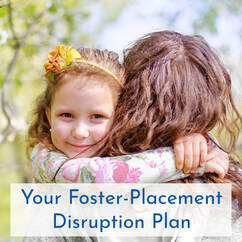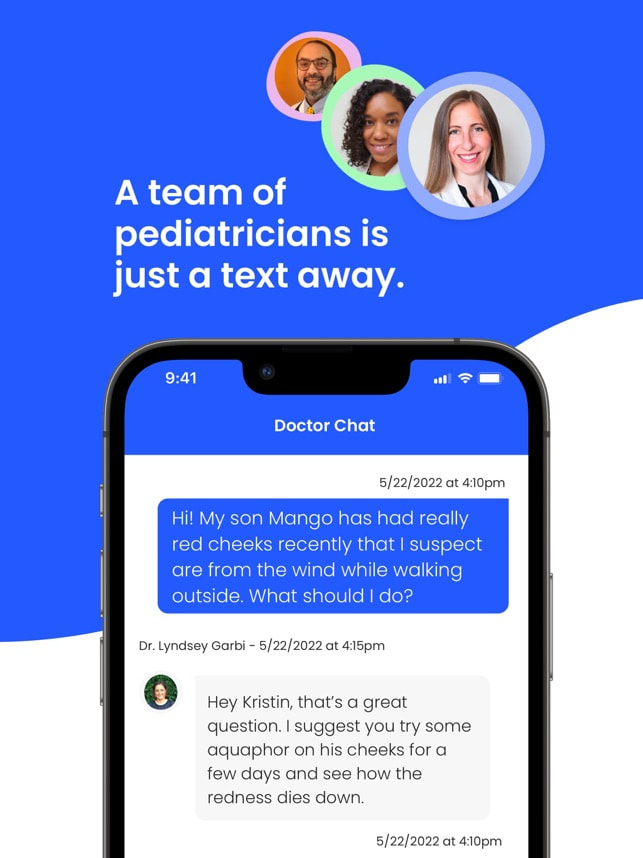 Some real talk here... When you foster, you're typically told you have an "out" if things go really bad. It's usually a 30-day notice to your agency or CPS that you can no longer care for the child. Maybe it gives you some solace to know you have an "out" when you're making the life-changing decision to foster. But here's what I wish every agency gave you with that information... a plan for how to prevent placement disruption. Disruption is just that: disruptive to the child--a child who has already had their life turned upside down, sometimes multiple times--and it should be avoided at almost all costs. First, you should know that most current or former foster parents have had that moment where they felt like they may have made a giant mistake (I talk about mine here). Recognize that that's normal. It doesn't make you a terrible person or a foster parent, it makes you human. I feel like most biological parents even question if they're right for the job at least a time or two (if not many more). Accept that it will likely happen so you can and should plan appropriately. 1. Before you foster, prepare yourself for what trauma and trauma-based behaviors look like. It's of course impossible to be prepared for every scenario, but read books about trauma, watch videos about trauma and do know that it is going to be tough. If you're fostering with a partner, have conversations about this together to make sure you're aligned. If you have bios or permanent kids in the house, understand going into it that these trauma-based behaviors (and having a new kid in the house in general) WILL impact your bio, so create a plan of action to ensure everyone has the opportunity to feel safe and loved in the house. 2. When the child is placed with you, have their physical and mental needs assessed and get treatment as needed. Therapies, while they will keep you busy, are your friend. They will (or should) help your foster child progress in their area of need which will help you keep your sanity. 3. Build a trust-based relationship with the child. You cannot expect a child who has just been ripped from the life they knew to suddenly love you and be bonded to you because you provided a roof and meals. Find age-appropriate ways to bond with them. Lift them up and encourage them. Help them deal with their fears and worries. 4. Accept help from others. Did a friend offer to bring meals? Accept. Did your dad offer to keep an eye on the kids so you could get some things done around the house? Accept. This will allow you to put your focus on #2 & #3. 5. Ask for help. This one is hard for me too but it has to be done. Do you need time off of work to be able to catch up on paper work? Request it. Do you need your partner to step it up a bit on the home front (even if they're already doing a lot)? Request it. Do you need to utilize respite care? Request it. Do you need your sister-in-law (who always says she's available to help but you feel guilty asking her) to pick up your bio from school so you can get your foster to the doctor? Request it. Again, this will allow you to put your focus on #2 & #3. 6. Find free resources. There are resources in the community for foster parents for a reason. Use them. Check to see if your state offers childcare assistance. Often pre-k aged foster kids qualify for free pre-k. All foster kids qualify for free lunch. Kids with special needs qualify for transportation to and from school. Foster closests are available in many communities. Some attractions and activities even offer discounts to foster families. Take advantage of this so you can...(see number 7). 7. Pay for help. Especially in the beginning, see if you can make it work financially to have someone come over every once in a while to help clean the house. Or see if you can regularly schedule a baby sitter to help with the kids. Maybe you just seriously need help with laundry and have a good laundry service near by. If it makes you feel better, think of it as stimulating your local economy! 8. While this coincides with #5 & unfortunately #7, seek therapy for yourself as needed. Your employer or your partner's employer may have an Employee Assistance Program that offers free sessions. Get a free week of therapy via BetterHelp here (affiliate link). Make a commitment here and now that you wouldn't send your foster child away for anything that you wouldn't send your bio away for (if you don't have a bio, think of a friend/family member with a bio, and think what behavior you would deem appropriate for sending their kid away). This can feel extreme—maybe like you lost that "out" that you had as a foster parent—but is the type of commitment kids in foster care need. Anything less has the risk of being more detrimental to the kids you agreed to help. |
AuthorI'm a foster mom, bio mom, working mom, special needs mom, busy mom. I'm also married to my high school sweetheart, I'm a proud 23-year childhood cancer survivor, and I'm passionate about serving my community. More from FosterMamaArchives
March 2023
Categories
All
|


 RSS Feed
RSS Feed